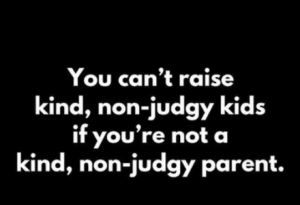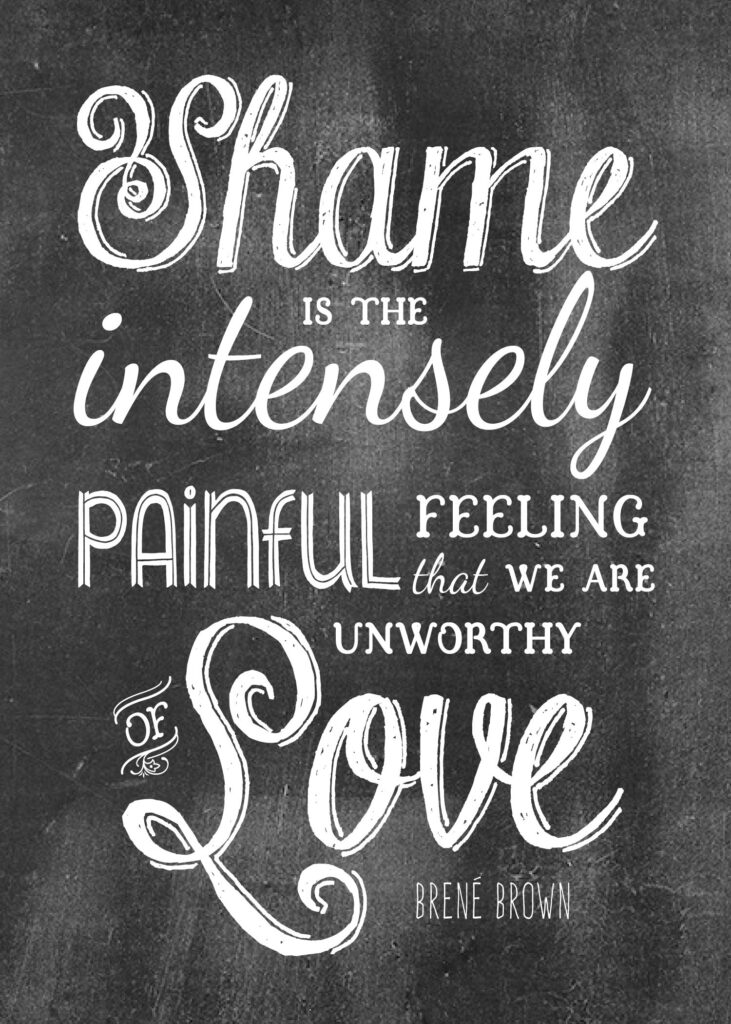I was watching a very interesting video on Vulnerability by Brene Brown which was WhatsApp to me by one of my dear friend Lisa, and I was silently absorbing what Brene Brown had to say. I realized vulnerability exists because of the shame we feel and that’s when I felt that as a counselor, I have found that the concept of shame has been a game-changer. I love how it has helped me understand human behavior and helped clients reshape their behavior.
So, as a very basic definition of shame, you must first know that shame means a painful feeling of humiliation or distress caused by the consciousness of wrong or foolish behavior and I would like to address it as our inside voice. It’s that inner critic who says means things to us. Shame makes us worried about what people will think or makes us think that we will never measure up. It makes our mistakes personal attacks on our worthiness. It sends the message that you are not worthy of love. It tells us we should hide our true selves because people would reject us if we were honest and vulnerable

Many of us can talk that inside voice down. We call this “shame resilience.” But some do not. If left unchecked, shame will make you either Build a Defence (get angry, lash out and blame), People Please (kiss up or make nice in an inauthentic manner), or Disappear (shut down or go away).
For example, let’s say that you get a call from your child’s principal that your child has been caught misbehaving in the class. If this creates a shame message in you such as ‘I am a horrible parent. I can’t believe my child has misbehaved, your shame has put your worthiness on the line. When that happens, a parent might react in one of the following three ways. To “build a defense” might mean that you yell at your child or blame their friends or the external influences for the incident or To “people please” might mean that you bribe your child to be good in the future or cover up with some explanation about stress at school. To disappear might mean that there was no discussion with your child about the incident. That you tell no one and do not speak of the incident.
Through my interactions with various clients, I have concluded that even the best at shame resilience can succumb to the “shoulds” and “supposed to’s” of parenting. It starts even before kids are born. You should stop drinking coffee, you really should breastfeed, you really should, you‘re not supposed to let your children watch television before a certain age. The list goes on and on.
So parents either learn to create a shield of defense around their shame messages or revel in the self-doubt that the shame creates. If you‘re the “shield from shame” parent, your shame messages and subsequent behaviors and thoughts are relatively unchallenged by anyone. There is no opportunity to reality check your shame messages. Or, if you are the “revel in shame” parent, every parenting decision you make is up for debate. Every behavior and thought, no matter how brilliant or sound, is approached as a group project, opening yourself up to feedback from just about any source. This person’s shame messages are worn for all to see and for all to soothe. So we are left with shame message and either getting no feedback or becoming so dependent on others for soothing that you have no real respect for yourself and neither do your children.

I know that I have written enough about Shame and its unhealthy responses but do not despair I am definitely going to share the one and only shame antidote and it is Authenticity. Being real.
Making space for the ugly messages in your head and not reacting to them at all. Talking to a trusted friend or partner and deciding how you want to handle a situation based on your authentic self. Reality checking with yourself that something as simple as pizza or cereal does NOT make a parent good or bad. Being vulnerable with someone who is healthy and trusted, and giving oneself a chance to understand the amazing power of being REAL.
When we can push past shame, we can begin to create solutions that actually address the problem. Shame makes things personal (YOU are a bad parent because your child flunked his/her test ). Shame resilience allows us to maintain our worthiness and concentrate on behaviors (You have not taken enough time to help your child study). When a parent can concentrate on behaviors with their worthiness safely stowed inside them, they can help. When they concentrate on proving or disproving their worthiness as a parent, well, then the solution is lost. You are lost in that quagmire rather than helping your child with his/her difficulties.
Shame resilient parenting is a tough undertaking. It requires parents to slow down and respond rather than react to shaming situations. Above all, it requires parents to know that they are worthy but not perfect. That they can be a good parent who can learn from past experiences and grow without building defenses, people-pleasing, or disappearing.
My next blog is going to give you all a few key insights and solutions on how parents can reduce the effects of shame on themselves and their children.
So keep reading and watch this space for more, meanwhile, if you want to discuss any incidences in your life which has left a scar of shame please feel free to book yourself a session with me to become shame resilient and lead a happy confident life!
Trupti Mandar Natekar


